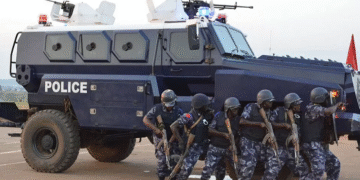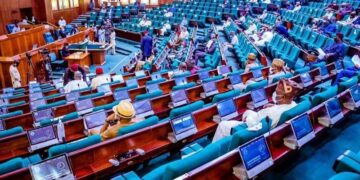The United States has issued a stark warning that terrorist organisations are actively seeking to establish footholds along Nigeria’s coastline and other West African coastal states.
In a security alert issued on Wednesday, the US Africa Command (AFRICOM) revealed that extremist groups including al-Qaeda and ISIS affiliates are exploiting political instability and security gaps in the region to expand their operations towards coastal areas.
AFRICOM commander General Michael Langley emphasised during the just-concluded African Chiefs of Defense Conference that terrorist groups are “deliberately working to destabilise coastal West African nations.” He noted these groups aim to control strategic ports and shipping routes to facilitate illicit trade and recruitment.
The warning comes amid growing concerns about terrorist activities spreading southward from the Sahel region. Security analysts observe that groups like ISIS-West Africa Province and Jama’at Nasr al-Islam wal Muslimin have intensified efforts to penetrate coastal communities through local partnerships with criminal networks.
Nigeria’s security apparatus remains particularly vulnerable, with experts citing multiple attempted attacks on coastal infrastructure in recent months. The US report highlights Lagos, Port Harcourt and Calabar as potential high-risk targets due to their economic significance.
Defence Headquarters spokesman Major General Edward Buba acknowledged the threat, stating: “We’re aware of these sinister ambitions and have bolstered maritime security operations accordingly.” However, he provided no specific details about new countermeasures.
The warning follows Nigeria’s recent pledge at the Global Counterterrorism Forum to enhance regional cooperation against maritime terrorism. Security sources suggest this includes potential joint patrols with neighbouring Benin, Cameroon and Equatorial Guinea.
Economic analysts warn that successful terrorist infiltration of coastal areas could devastate regional trade. Nigeria’s ports handle about 70% of West Africa’s maritime cargo, while the Gulf of Guinea accounts for nearly 30% of Africa’s crude oil exports.
Professor Abiodun Alao of King’s College London noted: “This represents an evolution in terrorist strategy. Control of coastal territories would give these groups access to sophisticated smuggling routes and greater international visibility.”
The US has offered increased surveillance support and intelligence sharing to help combat the threat. However, some regional governments remain wary of perceived foreign interference in sovereign security matters.
As security forces ramp up preparations, residents in coastal communities report growing anxiety. Fisherman Emmanuel Okon in Bayelsa State told our correspondent: “We’ve seen strange movements at night. The government must protect us before these terrorists arrive properly.”
The Nigerian Maritime Administration and Safety Agency has convened emergency meetings with port operators to review security protocols. Meanwhile, the House of Representatives has summoned security chiefs for a briefing on preventive measures.
With West Africa’s stability hanging in the balance, regional leaders face mounting pressure to translate warnings into concrete action before terrorist ambitions become reality.












































Discussion about this post